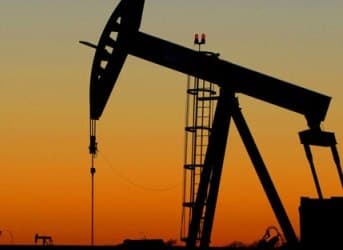South Africa, Africa’s largest economy, has a weakness – the massive deficit caused by energy imports.
Largely bereft of hydrocarbons, Pretoria relies on imports.
Last year, the authoritative U.S. government’s Energy Information Agency noted, “South Africa's energy sector is critical to the economy as the country relies heavily on its large scale, energy-intensive mining industry. South Africa has only small deposits of conventional oil and natural gas and uses its large coal deposits for most of its energy needs.”
The EIA continues, “South Africa had proven oil reserves of 15 million barrels in January 2011. All of the proven reserves are located offshore southern South Africa in the Bredasdorp basin and off the west coast of the country near the border with Namibia. South Africa has no significant crude oil production but the country did produce slightly over 180,000 barrels per day (bpd) of non-conventional, synthetic liquids processed from coal and natural gas.”
Accordingly, given its “small deposits,” South Africa has relied on imports from benign foreign suppliers. South African oil consumption is estimated to be slightly over 550,000 bpd, of which approximately 370,000 bpd is imported, roughly 67 percent of the country’s consumption) The majority of South African oil imports are from OPEC countries, primarily Iran (29 percent), Saudi Arabia (24 percent), Nigeria (19 percent) and Angola (18 percent). Adding to Pretoria’s uncertainty are the increasingly taut international sanctions being applied against Iran.
But surprise surprise, apparently foreign oil companies have been involved in price fixing collusion, in a practice dating back to the 1980s. The products involved included gasoline, diesel, illuminating kerosene and other products.
Related Article: Putin Strengthens his Grip on World Energy with TNK-BP Deal
Accordingly, on 24 October, following "wide ranging investigations" since 2009, South Africa’s Competition Commission announced that it had uncovered "collusive conduct" that stretched back decades between subsidiaries of global oil majors, American subsidiaries companies Chevron SA (Pty.) Ltd., and Shell SA (Pty.) Ltd., France’s Total SA (Pty.) Ltd and the United Kingdom’s BP SA Ltd., accusing them of colluding to rig consumer prices and recommended to South Africa’s Competition Tribunal that the firms face massive fines, stating that a fair recompense would be that each company be fined 10 percent of total turnover from their South African business for the last fiscal year. The Competition Commission reported, "The investigation revealed collusive conduct through extensive exchanges of commercially sensitive information by the respondent oil companies. The oil companies intended, inter alia through the information exchange, to protect historically high profit margins."
The Competition Commission report continued, "Information at this level of detail allowed the oil companies to closely track each other's sales and to align their strategies in the market, eliminating competition between themselves. This also enabled them to divide or allocate markets by deciding not to enter, or compete for, certain geographic markets or customer groupings."
South Africa’s Competition Commission accused the firms of “extensive exchanges of commercially sensitive information”, such as monthly fuel sales, allowing them to “track each other’s sales and to align their strategies in the market” and determined that that confidential information exchanges between the firms had been occurring since the 1980s. Worse, from 2005, the data flow went through the South African Petroleum Industry (SAPIA), which formed in July 1994 by six of the country’s leading petroleum refining and marketing companies.
Related Article: Why Shale Oil Will Never be a Game Changer
At least two of the companies cited are determined to brazen it out, as a BP spokesman announced, “We are looking into the implications of the announcement with our legal counsel.” A Shell spokesman said, “We are committed to conducting our business in a manner that is both fair and ethical. As a matter of policy, Shell prohibits anti-competitive conduct.”
Nor were the quartet of oil companies the only “named and shamed,” as the Competition Commission also accused South Africa’s Sasol Ltd. and Australia’s EnGen LLC as colluding in the price fixing.
ADVERTISEMENT
So, where next for Pretoria? The government must move carefully, lest it not throttle the goose laying the hydrocarbon eggs, but it does have one ace up its sleeve, the fact that South Africa is Africa’s most advanced economy, and accordingly, one that the miscreant companies would likely to be loath to be shut out from.
While for many Africa is a byword for corruption, in this case, the country’s burgeoning energy mean that needs to turn to other, more “advanced” countries and technologies to meet its energy needs.
And, if they collude amongst themselves, well, as Michael Corleone observed, “it’s just business.
By. John C.K. Daly of Oilprice.com


















